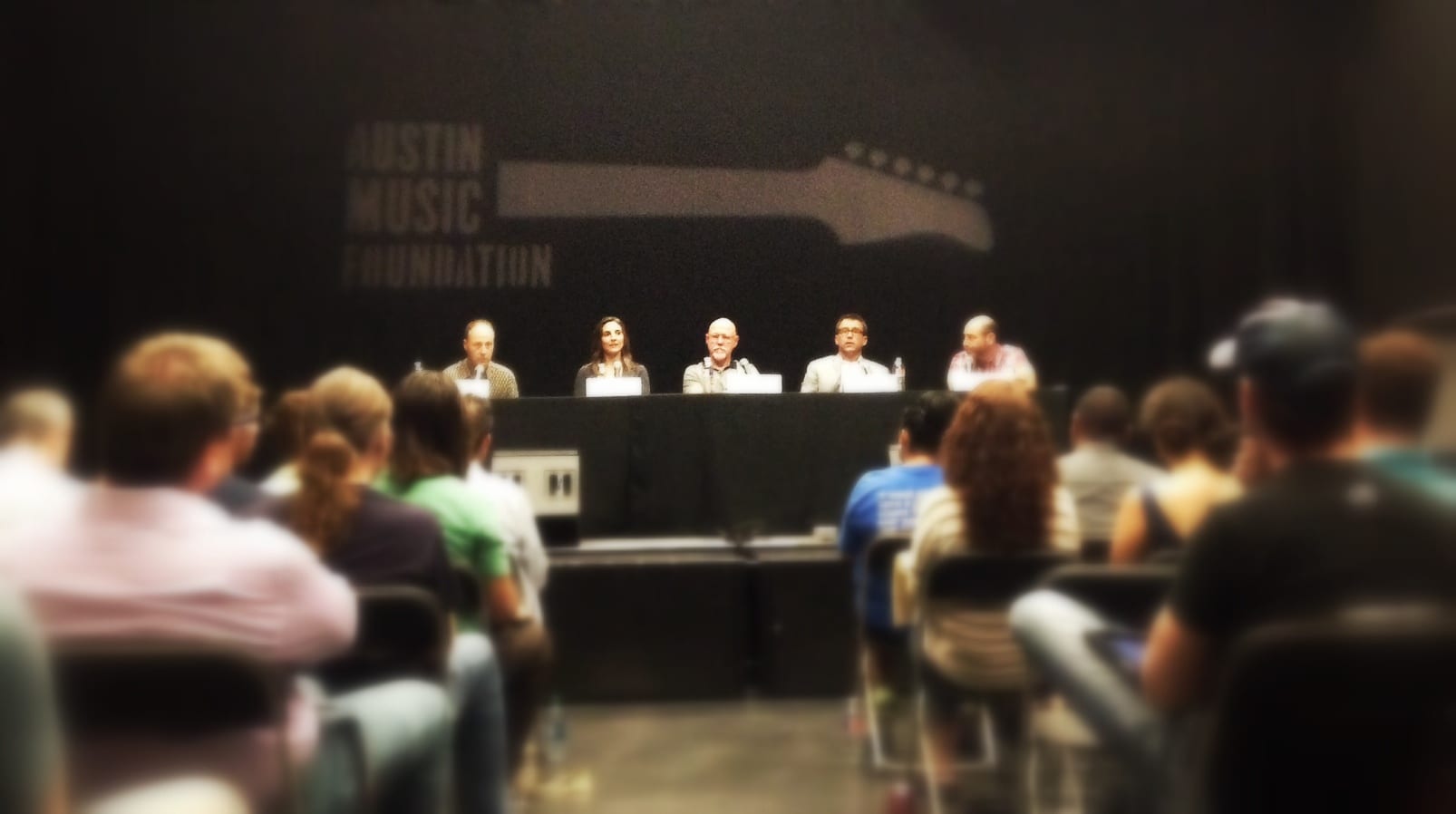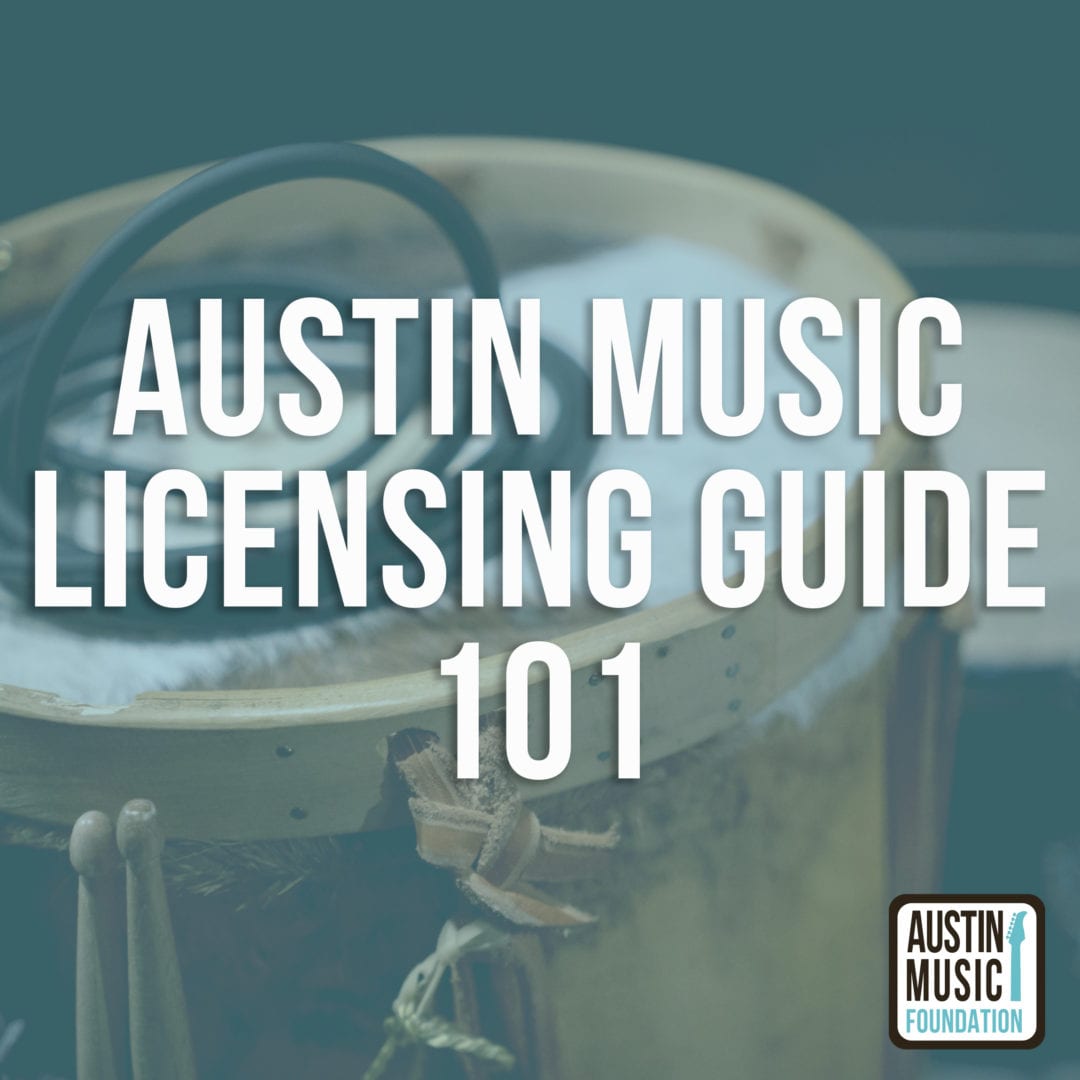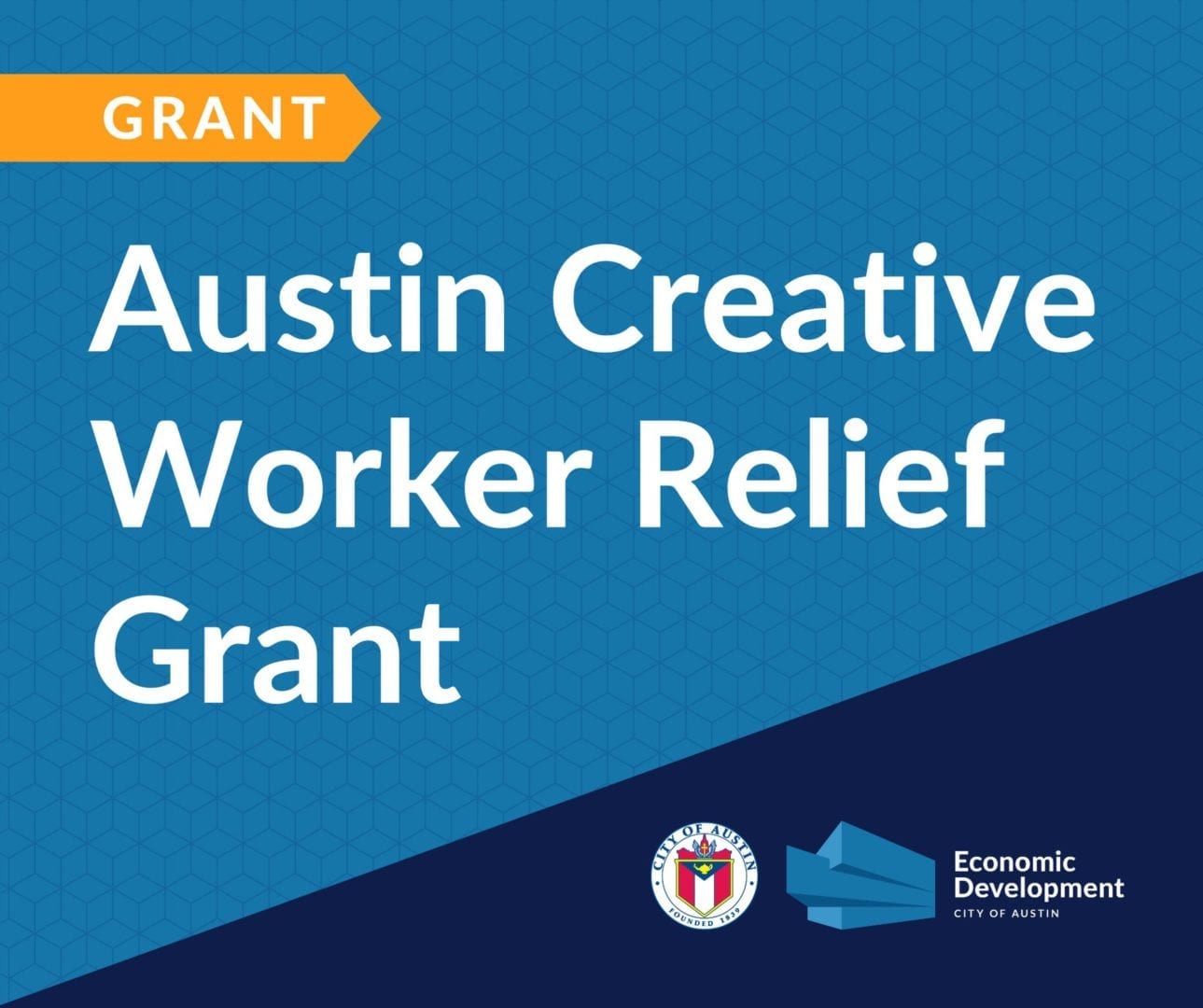Protecting Your Music (Panel Recap)
Last Wednesday, musicians, band managers and promoters alike gathered together at Soundcheck Studios to garner invaluable advice on topics such as copyrights, band agreements and trademarks at our Protecting Your Music legal panel. Four of Austin’s top entertainment lawyers spoke on the topics: Joe Stallone, Andrea Villareal, Mike Tolleson, and Craig Barker. They offered their insights and provided great takeaway lessons for anybody trying to educate themselves on the legal side of things. If you missed the panel, not to worry…we took notes.
Trademarks
The biggest lesson we learned from Joe Stallone on trademarks is that your most invaluable asset is your band’s name. It is your identity. You can use your band name to generate other streams of revenue, such as licensing, merchandise, etc. While your band name is technically a “service mark” and not a trademark, people tend to use those terms interchangeably, and it is crucial to protect that. How do you do that? You can search for and register service/trade marks through the US Patent and Trademark Office (http:www.uspto.gov). Before you start selling tickets, albums, and other merch with your band name, check to make sure it is not being used. Nothing can deflate your authenticity like some random band in another state also gaining popularity with the same name.
Band Member Agreements
Mike Tolleson told us something important right off the bat: when you work with your bandmate(s), you sometimes unintentionally enter into a partnership with those people, and without a band agreement, you will jointly own intellectual property and assets. If there is no band contract, there can be confusion as to who owns what. To avoid this misunderstanding, a written agreement is necessary to distinguish how your properties will be divided in the event that the band splits up and members go their separate ways. Tolleson also said that having an LLC as a band is good for investors. It gives them something tangible and more established to “plug into”. If you don’t have a band agreement, you could suffer some pretty hefty consequences. You can be held responsible for the actions of another band member, which can sometimes affect your personal assets. Bottom line — create a band agreement. Anybody who’s worth teaming up with should understand this is a necessary part of the process.
Copyrights
“If you get nothing out of this, the main takeaway is that you should get EVERYTHING in writing”. This was what Andrea Villareal led with as she schooled us on the multifaceted topic of copyrights. She explained that they are a piece of intellectual property, and that in a song there are actually two different copyrights: the musical composition and the master/sound recording. The musical composition copyright is a copyright on the intangible part of the song, such as the melody and lyrics. The master/sound recording copyright covers that particular recording of a song. Most people don’t realize there are two different copyrights in one song. You can register your copyright at http://copyright.gov and when you do so, you are given a “bundle of rights”: The right to reproduce, the right to distribute, the right to publicly perform the work, the right to create derivative works, and the right to display the work in printed form. This bundle of rights can help protect you and your music.
Investors
Craig Barker spoke to us about the importance of spending quality time with your budget and told us that money goes into much more than just recording. Even if you have a really great album, the greatness itself doesn’t guarantee success or that you’ll get anywhere with it. Marketing is crucial. Anything from radio promotion to publicity to touring is going to cost you money too, and you might be low on funds after spending your money to create this rockin’ album of yours. This is where investors can be handy. You should choose them wisely, as they are going to want to have a stake in your business. Make sure to have fair and reasonable terms with which you will be repaying them. Accredited investors know that sometimes money doesn’t get paid back in a short amount of time, and it is legally necessary to disclose to unaccredited investors that there is a possibility that will happen.
–
Needless to say, there was a LOT of information covered! Within the next couple of weeks, we will have an audio recording of the panel from start to finish on our YouTube channel (https://www.youtube.com/user/austinmusicfdn). It will have all of this information PLUS some Q&A with attendees at the end.
If you need more help or have questions, that’s what AMF is here for! Feel free to schedule a consultation by calling our office at (512) 542-0077 or send an email to info@austinmusicfoundation.org.






